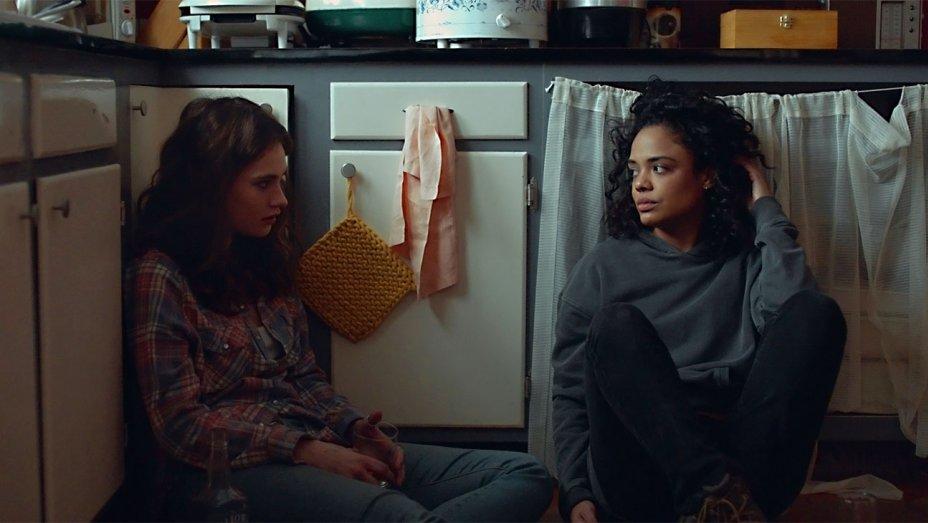
_This review contains spoilers for “Little Woods.”_
Nia DaCosta opened Citizen Jane Film Festival on Nov. 2 with “Little Woods,” a neo-Western thriller that blends criminality and imposition, formulating a passionate modern-day story about social status and loved ones. It’s an unshockingly heavy-hearted feature, and the association of relevant social issues provides an outlet for important conversations.
“Little Woods” follows Ollie (Tessa Thompson), who used to make runs across the Canadian border from North Dakota to supply her family, mostly her terminally ill mother, with medication. She eventually started selling the prescriptions to members of her town until she was caught crossing the border. With just 10 days left on probation, Ollie is given the opportunity for a new life — one that doesn’t connect to her past as a prescription drug smuggler. Although hope of getting out of her oil boomtown and acquiring a respectable job seems just within reach, Ollie’s poverty-stricken sister Deb (Lily James) tells her that she is pregnant with a second child.
Barely able to financially support herself and the son she has now, Deb considers her options, first deciding that she will have the baby. Once she learns that the medical expenses will add to around $8,000, she changes her mind, forced to figure out how to terminate the pregnancy easily, safely and inexpensively. Ollie reluctantly returns to her previous drug dealing ways to assist her sister and nephew by raising enough money to dismiss the foreclosure of her mother’s house and sign the lease over to Deb.
Ollie and Deb have a complex, yet obviously close relationship — Deb recognizes that Ollie should leave their hometown and escape her previous downfalls, but heavily relies on her sister motivationally and monetarily. The film shows the unique bond between siblings, full of kindred love and encouragement, but also profoundly necessary in order to survive. Their relationship is a bittersweet one, and regardless of their needed dependency, it’s nothing short of admirable.
Deb lives in an illegally-parked trailer, trying her best to support her son by working at a diner and taking classes. Even with money that the nearly absent father, played by James Badge Dale, begrudgingly gives them, it’s hardly enough. Deb doesn’t have a financially stable background to give her a boost, an unfortunately relatable situation for many people. The pronounced theme of working-class issues is easily comparable to the dilemmas in today’s society. Providing universal health care is a well-indicated problem in the U.S., especially since affording essential items like food and clothing can be just as difficult.
Deb understands that even if she is able to pay the pregnancy expenses, she won’t be able to support two children. That elicits a controversial topic often not thought about in regard to financial need—abortion. With the nearest clinic hundreds of miles away, Ollie decides to smuggle prescription drugs across the border and for the first time, her family. That creates an opportunity for Deb to terminate her pregnancy in Canada.
“Little Woods” is administered slowly, with minimal camera movements and long, drawn out takes to formulate the somber and desperate tone. The lengthy shots allow plenty of time for Thompson and James to deliver superb performances, both separately and collectively. The actresses are only rising in popularity, Thompson recently starring in “Sorry to Bother You,” a film similarly delving into capitalistic injustice and defiance, and James bringing her charm to the Oscar-nominee “Baby Driver” and this year’s “Mama Mia! Here We Go Again.”
Thompson’s work as Ollie is impressive, conveying the attitude of a remarkably resilient and sympathetic young woman. One of my favorite scenes includes Ollie getting thrown out of a bar after starting a fight, a typically worn-out scene within Western-style films, but with a nice gender-role change. The subtle humor of the scene rapidly shifts as Ollie determinedly drives to find Deb’s towed trailer, Thompson’s expressions and mannerisms immaculately shifting with it.
As a fan of the film’s cast and crime-thriller genre, I began “Little Woods” with high hopes. I was gratefully not disappointed, and it actually possessed more suspense and charisma than I originally expected. I’m a sucker for powerful, female leads and tragically sympathetic situations, both in which “Little Woods” beautifully represented. It was a brilliant start to Citizen Jane’s weekend of female-driven films, hopefully opening up conversation about pressing social status and women’s rights issues.
_Edited by Siena DeBolt | [email protected]_